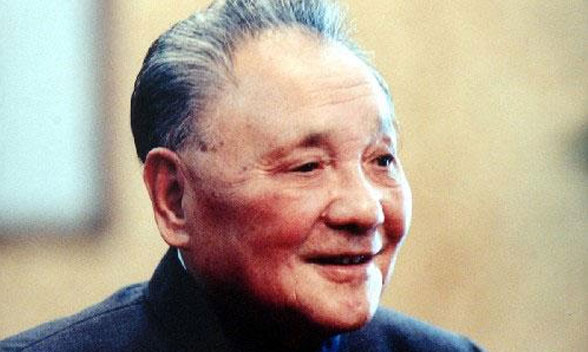 |
| Deng Xiaoping, the father of modern Chinese capitalism. |
Yes, an avowed communist, Deng Xiaoping, who lived through the Mao era of China and survived two purges during the Cultural Revolution, outmaneuvered Mao's chosen successor to seize power in 1978. By the time he left power in 1992, China had transitioned to a state-controlled capitalist system, which essentially exists to this day.
I choose Deng as my premier example of what politics is all about to demonstrate that even in a command economy the central role of government is to decide how capitalism works. We in the West -- North America, Europe, and those in our sphere -- define our capitalism as market economies, though many countries, such as those of the socialist-leaning Scandinavian region, thrive under a mix of both.
How does this dynamic work in the U.S.? Right now, quite badly. Yet this is what, for better or worse, shapes our politics.
In a technical sense, this dynamic also leads to our two-party system, which many fault as the bane of our political existence, but I think these people are wrong. I'll explain.
- Those on the left -- liberals, progressives -- believe that markets aren't efficient and need regulation to function.
- Those on the right -- conservatives, libertarians -- believe that markets are efficient and government only interferes with their efficient functioning.
It also helps explain two important political realities: one, why we need a strong, two-party electoral system, and, two, why the Republican Party has utterly collapsed as the representative party of the right.
Why a two-party system? It's fundamentally because splinter parties that those disillusioned with our politics want to flock to -- the Libertarian Party on the right and the Green Party on the left, as examples -- embody views that belong within the confines of our Democratic/Republican divide.
Why? It's relatively simple: Libertarians are conservatives who want government disengaged from as many decisions as possible, and Green Party people are progressives who push environmental concerns. As much as one might want to, you can't separate these elements out of our left/right political split.
A case can be made -- I've made it myself -- that conservatives should embrace Green issues, but they don't, so that's that.
What does this have to do with the collapse of the Republican Party? That's also relatively simple: It's gone so far toward the Dark Side -- the place where politicians live in a closed-loop system of thriving off of the donor class in exchange for letting the donor class run everything for their benefit -- that they've become utterly morally corrupt.
This reality is so clear to so many that it leaves the realm of opinion and enters the realm of fact. As bizarre as it might seem, the angry masses of working-class white males that are the core supporters of Donald Trump -- and now the core of the Republican Party -- are a direct product of the failure of the Republican establishment to pay attention to its core constituency as it gave away the store to the donor-class elite.
So the rise of Trump is, in effect, a market failure. It has become clear that the conservative love of unregulated markets was, in effect, a con game intended to let those markets become totally abused by the donor-class elite. Hence, the burgeoning divide known as Income Inequality.
To finish, let me say that, along with Tom Friedman -- someone I've stopped listening to, though his column today rang quite true, so here's a link -- I believe we need a new Republican Party to allow our politics to do what it's supposed to do, which is navigate our way as a nation to a form of capitalism that works for the common good.
Today's Republican Party can't do the job, so into the dumpster with it, all of it. But we need a party of the right that has a moral center if we're to function well as a nation. Here's hoping that process starts right now in 2016. It appears that it's already underway.
Note. I can hear many people saying, "But, but, the Democratic Party is also corrupt!" Sorry, there's no equivalence here. Sure, many would like money out of all politics, and, sure, many would like the Democrats to lean more to the left -- so would I -- but there's no denying that, from the center-left, they do their job of representing those who want market regulation, as they have proven recently with Obamacare and Dodd-Frank. It's not enough, but it's definitely not nothing.
Also, I didn't explain what I noted in the lede -- that religion mucks up this political process -- because it should be somewhat obvious. Briefly, let me say that it's what keeps the Middle East in such disarray, and it's what keeps American conservatism from doing its job properly, mostly because too many people don't understand the First Amendment. But let's save that for another day.

No comments:
Post a Comment